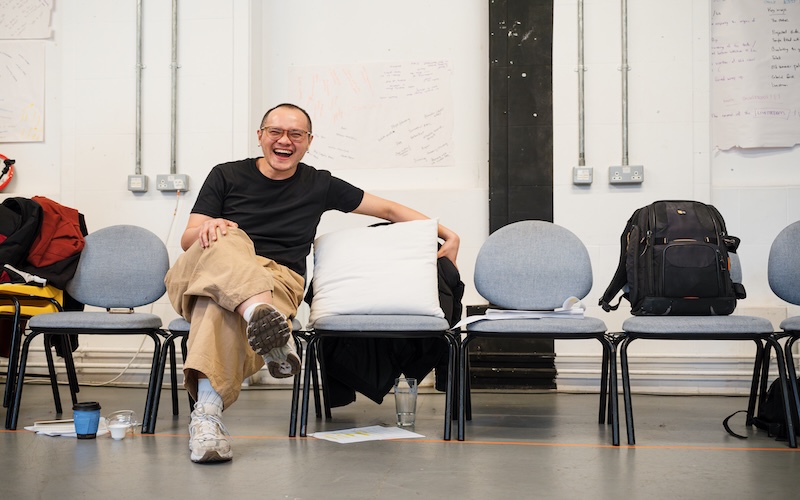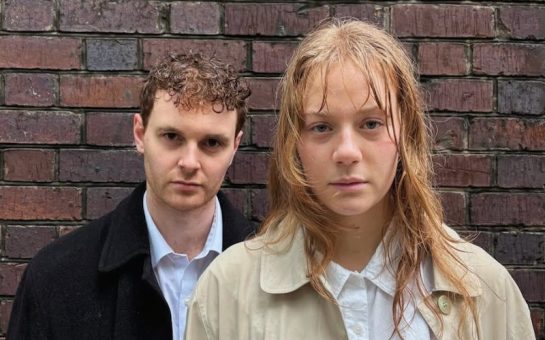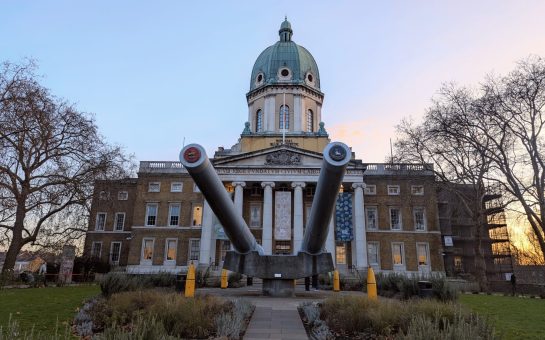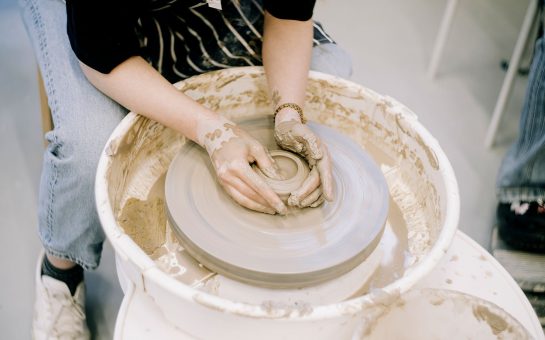Joel Tan’s latest play, Scenes from a Repatriation, examines questions over who claims cultural artefacts, the politics around stolen art in museums, and the thorny issue of repatriation.
The 37-year-old describes the play, which opens at The Royal Court Theatre on 25 April, as taking a multiple set of perspectives about a statue, the Boddhisattva Guan Yin, as it resides in the British Museum.
Tan came to the UK from Singapore in 2017 for his master’s degree, and it was then he first visited the British Museum.
He said: “It was a very upsetting experience – I didn’t expect it to be.
“As I started walking through and started to see how these objects, stolen or not, were displayed, these objects of spiritual meaning to different communities, devotional objects, and the callousness of that display, it made me really angry.
“There were a couple of Chinese Buddha artefacts on display in the museum, and that in particular got me really upset.”
When asked about the politics of repatriation and whether his play aimed to wade into the controversy, Joel was quick to rebut the word controversial.
He said: “If anything, the play is inviting people to look beneath the controversy and beneath these polarised ways of conducting these conversations, and reflect on how you might have an emotional relationship to an object, or imagine a spiritual life of these objects that were once objects of devotion.
“I think that because these conversations are so often conducted in such bad faith, they’re rarely about the objects and they’re rarely about the communities that are asking for these objects to be returned.
“They’re often a lot more about preserving a certain version of British history and British institutions, reflecting a desire for a certain kind of outmoded vision of Britain’s role in the world.”
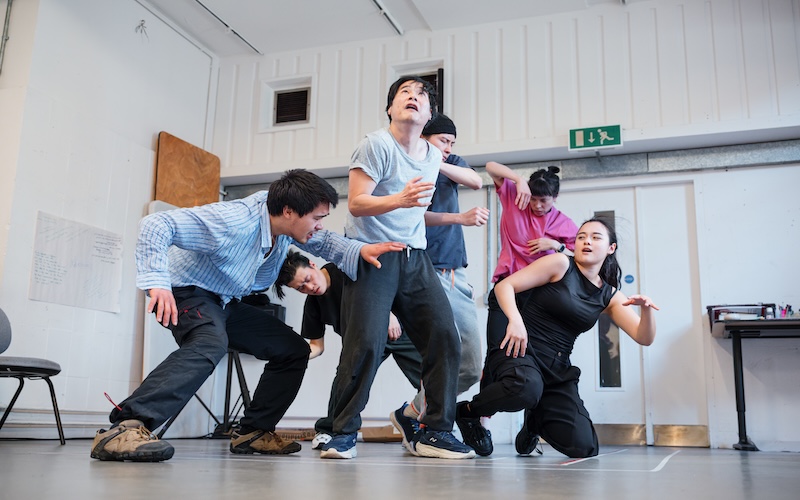
The play imagines a repatriation dispute between the UK and China, exploring the ways in which the relative strength of China’s geopolitical position would shape the narrative differently, in comparison to other repatriation claims.
Tan described early rehearsals as having taken a very discursive form, as the cast shared new things they had learnt, for instance, about Chinese history, including the opium wars and previous repatriation cases.
He said: “It’s been hugely educational for all of us because I think this just makes you want to read around it a lot.”
These discussions in turn influenced much of the ensemble work in the play on a visual level.
The play’s directors are the experimental duo, emma + pj, whose previous work includes Ghosts of the Near Future at the Barbican.
When asked about their rehearsal process, Tan said: “The way that they work, which I really love, is very ‘design lab’.
“I think, more than other directors I’ve worked with, they put a lot of attention into finding really interesting and complex stage images and how to use the ensemble of actors in a quite beautiful way.
“What feels more satisfying, I think, is that it’s a very big play being stationed in a very small space.
“I think there’s something interesting about their approach, which allows for a small studio space to contain really big feelings and images and ideas.”
Tan and emma + pj, along with the design team, held a series of in-depth research and development sessions in the winter, before the cast had even been decided, in order to establish the design elements of the play.
The Royal Court, where the play will run until 24 May, is a theatre that is widely seen as being the home of new writing, championing fresh theatrical works all year round.
Tan said: “I’ve been in conversation with the building for quite a number of years now about this play, so on the one hand it feels like there’s a comfort to it because it feels like this building has held this play for quite a while, like it feels like the culmination of a long process.
“It doesn’t feel overwhelming in that sense, but what is kind of overwhelming, I guess, is to be reminded of the lineage of plays that have gone on here, which can be freaky because it’s such a rich tradition and some of my favourite playwrights and the best plays I’ve ever seen, I’ve seen in this building.
“So it just feels kind of scary, but at the same time quite wonderful to be part of their soup.”
Joel has a history of satirical writing, with his previous work including G*d is a Woman, a play about the fictional censorship of an Ariana Grande concert in Singapore, and an adaptation of Molière’s classic barbed comedy, Tartuffe, which, although it retained its original 17th Century French setting, was staged to critique a very specific strand of conservative Christian religiosity in Singapore.
Molière’s original staging of Tartuffe was widely censored by the religious authorities of the time, and sparked a debate, which continues to rage today, about whether satire should be didactic and corrective in its aims.
On this quarrel, Joel said: “I suppose there is a certain didacticism to satire insofar as it’s very often speaking some kind of petulant truth to power.”
However he went on to express his ambivalence about whether theatre has a duty to be didactic, or whether it should leave complex questions in the air.
Tan would never be so black-and-white as to proscribe what reaction he’d like from his audience members, however he does hope that people approach museum artefacts differently as a result of seeing his play.
Tan said: “When I started doing all this research and started writing this play, I started looking at objects on display very differently and began to see them as repositories of more than just what we were being told on the little placards, that they are not just points of reference of some long-gone civilisation.
“They also hold in them very contemporary histories and human stories.
“If you could write a play about each object, they would be completely different plays, and maybe if there’s something that I hope happens as a result of watching this play, we could take this slightly more extended sense of what it means to look at these objects with us.”
Scenes from a Repatriation is running at the Royal Court Theatre from 25 April until 24 May.
Tickets are available via The Royal Court Theatre website.
Picture credit: Alex Brenner
